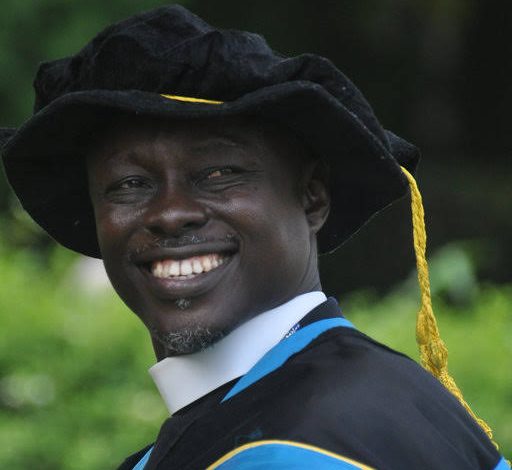Abuja Book Fair 2023: Charting new paths for reading renaissance in Nigeria
* ‘Book as indispensable instrument of development’
* ‘Federal, state governments’ review levies contributing to high cost of books’
By Ozoro Opute
TO pay scant attention to books is to head in the wrong direction and away from any form of development. Sadly, this seems to be the case with Nigeria, especially her governments at all levels – from the federal, to state and local governments. The sorry state of libraries in the country is easily the barometre to attest to this fact. For instance, the National Library of Nigeria (NLN) complex has been being built since 2013 or thereabout, with over N15 billion spent. Yet Nigeria does not have a national library. It’s far from being a work in progress. The states’ library boards do not fare any better. It’s a tale of cobwebs, dust, ancient and unusable books and abandonment. Yet Nigeria desires development.
The questions then are: how can a country desire development and not read? How can development happen without reading infrastructure like libraries that are well stocked with books? This formed the conversation at the Dr. Tony Akpokene-led Abuja Book Fair 2023 that ended last Saturday at Sharon Ultimate Hotel, Abuja. It had as keynote speaker, Mr. Dare Oluwatuyi, whose choice was instructive. He currently manages the oldest bookshop chain in the country, CSS Bookshop, founded by the Church Missionary Society in 1869. He is also the President of Booksellers Association of Nigeria (BAN) and Chairman, Nigeria International Book fair Trust (NBFT), organisers of the yearly Nigeria International Book Fair (NIBF) that has held 22 uninterrupted editions. Mr. Oluwatuyi spoke on ‘Towards a Reading Culture Renaissance in Nigeria’ in sync with the theme of the third edition of Abuja Book Fair, ‘Reading Culture Renaissance 2’.
After tracing the history of reading and education in Nigeria through the various missions, the establishment of Yaba Higher College to the University College, Ibadan, the influx of foreign publishing houses and university presses, the era of Ontsha Market Literature to African Writers Series and Pacesetters and other literary series, Mr. Oluwatuyi stressed that a number of things could be done to return Nigeria to her golden era of love for books for reading renaissance to happen. The proverbial all hands being deck, according to him, is what is needed to return to a national pastime that has suffered a dysfunctionality and why Nigeria is headed in the wrong direction development-wise.

Organiser of Abuja Book Fair 2023 and founder of FlomatBooks, Dr. Tony Akpokene (left); author, Hon. (Dr.) Eddie Mbadiwe; Mrs. Ijeoma Ogbogu of Nigerian Copyright Commission (NCC) and Chairman of Nigeria Book Fair Trust (NBFT) and keynote speaker at the fair, Mr. Dare Oluwatuyi on Day 2 at the book fair in Abuja
According to him, “It (reading) is a task for all. Industry players, the government and the reading public. A lot of deliberate advocacy, lobbying, publicity and awareness are needed. Events like this (Abuja Book Fair) are very welcome part of the mix. We must keep pushing the book in the faces of all of our people, both big and small. This is why NBFT, for example, has, for 22 years without fail, also conducted the Nigerian International Book Fair (NIBF).
“Governments’ policies pertaining to book development and the reading culture have to be rejigged and given fresh or renewed impetus. Libraries must be better funded to become very attractive go-to centres for the population. The National Book Policy has to urgently and formally come into effect. Given its import as a core directional driver for the ecosystem and reading culture enhancement, NBFT is already contemplating working towards this being done within the next three years. It can even be earlier. We invite all lovers of books and the reading culture in Nigeria to support us in achieving this goal.
“Librarians, in particular, have to stand up from their chairs and take their frontrow spot in leading the rest of us into taking the reading culture campaign to the marketplace, to estates, to communities and neighbourhoods.”
Oluwatuyi harped on the establishment of book clubs across the country, as a path already being trodden with significant results. He urged stakeholders to take steps to be part of it, so as to broaden the book-reading ecosystem and take it to communities and neighbourhoods. According to him, “Publishers, booksellers, and again librarians, must become more vibrant and deliberate in the reading promotions arena. One easy route to follow is to key into the activities of Network of Book Clubs and Reading Culture Promoters in Nigeria (NBRP) that has, in the past three years, been uniting book clubs across the country and setting up new ones for even broader field coverage and effectiveness. NBFT and BAN have identified with them and are already working with them. We and other stakeholders were part of their Lagos Book Walk mega-advocacy street reading promotions exercise in April. We need to pull all the stops and grow to become a country that is reading again, a country that has at least one book club and library per LGA, in the first instance, and thereafter, one book club and reading space within five to ten kilometres of all of our geography.”
While giving his opening remarks, Abuja Book Fair organiser and founder of FlomatBooks, Dr. Akpokene, stressed the importance of books as agents of development without which a society progresses in error, saying Nigeria was currently on that negative path on account of poor appreciation of books. He said he came from a family of readers, from his great grandfather, his grandfather, his father and mother, who were teachers, and so had no choice but to read books as first commandment in his early years. He expressed gratitude to his parents for inculcating in him reading habits, saying he would have become a hoodlum like most of his age mates growing up in Obahor Street, Warri, Delta State who derided school and never progressed beyond becoming ‘area boys’. He said his mates who abandoned reading and school were part of those who ruined that once famous oil city with needless civil strife that has made Warri a shadow of itself. Akpokene went on to study petroleum engineering and worked with Shell for many years before venturing into selling books to satisfy an irresistible innate passion.
Akpokene said any country that neglects book-reading culture is doomed, noting that Nigeria’s current problems stemmed from a largely illiterate political class who failed to imbibe the culture of reading books, the only facility that leads to statecraft which ultimately drives development. He called on like minds to not despair, but to forge on regardless and lead the way to a book-reading renaissance, so as to liberate the country from the clutches of darkness and under-development.
During the interactive session, Oluwatuyi and author and legislator, Hon. Eddie Mbadiwe, said governments at all levels were responsible for the high costs of books in the country. They wondered why Nigerian Educational Research and Development Council (NERDC) and the states’ ministries of education should charge monies to review books that examination bodies can recommend to schools from publishers and authors. They accused state governments of using book reviews, as avenues of revenue-generation, a development they said was counterproductive, as such costs would be passed on to parents who buy books for their wards. They also amplified the negative trend of such development, saying parents can no longer buy books for their children and wards because of the high costs of books thus deepening illiteracy among teachers, pupils and students alike.
Oluwatuyi also called on the federal government to look into the challenge of printing in the country with a view to arresting the ugly development. Book printing, Mr. Oluwatuyi said, was now an offshore business that is draining scarce foreign exchange since it’s cheaper to print in Asia. He said the development is inimical to the local economy since local printers are rendered jobless, with such jobs being ceded to foreign printers, and ultimately deepening unemployment in the country. He tasked the federal government to revive the once thriving paper mills in the country, so books are printed at affordable rates locally.
The CSS boss particularly faulted the federal ministry of education for not engaging stakeholders in the education ecosystem, especially those in the book publishing value-chain. He wondered why the ministry is unable to organise seminars or workshops, with stakeholders in the publishing value-chain helping to brainstorm and solve problems in the educational sector, especially in the area of availability of books for schools and the general public. Oluwatuyi said one of the things crippling the availability of quality books is governments’ unwise policy of buying books and distributing same to schools, noting that the system is fraught with abuses that continue to defeat the purpose. He said most of the books governments buy end up in the market through the backdoor. He pointed at the purchase of Opoimo tablets for students by Osun State Government some years ago under Governor Rauf Aregbesola, noting that in spite of that gesture, students of Osun State were still stuck at the bottom in the results of examination bodies’ released every year. Oluwatuyi therefore tasked governments to rethink their strategies by engaging stakeholders in the book value-chain for better results. He said the Nigeria Book Fair Trust was available to partner with governments to lead the charge for the needed innovation in the book and educational sector.



